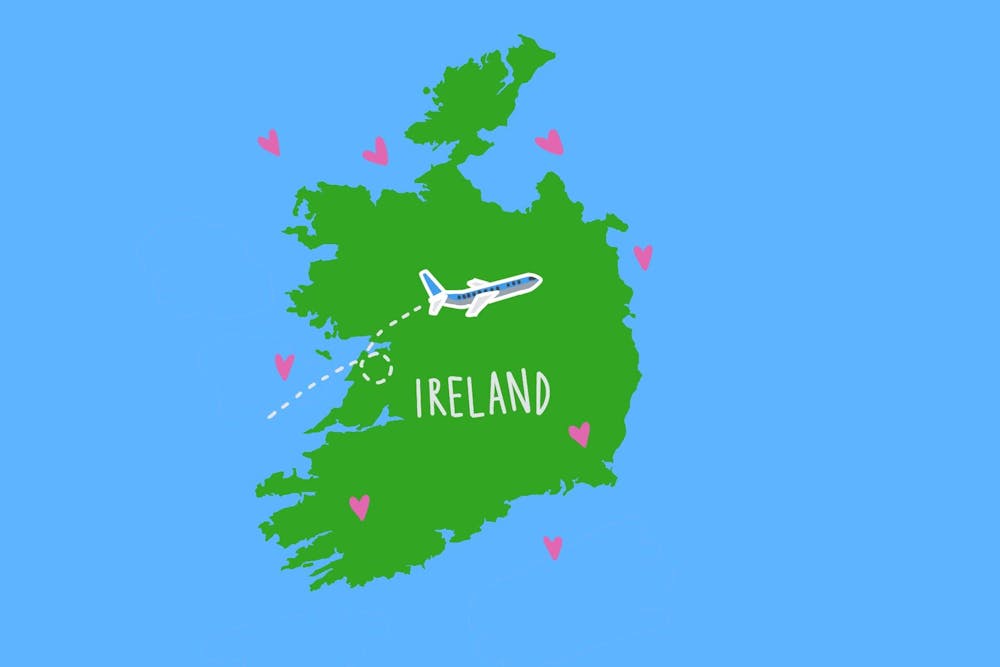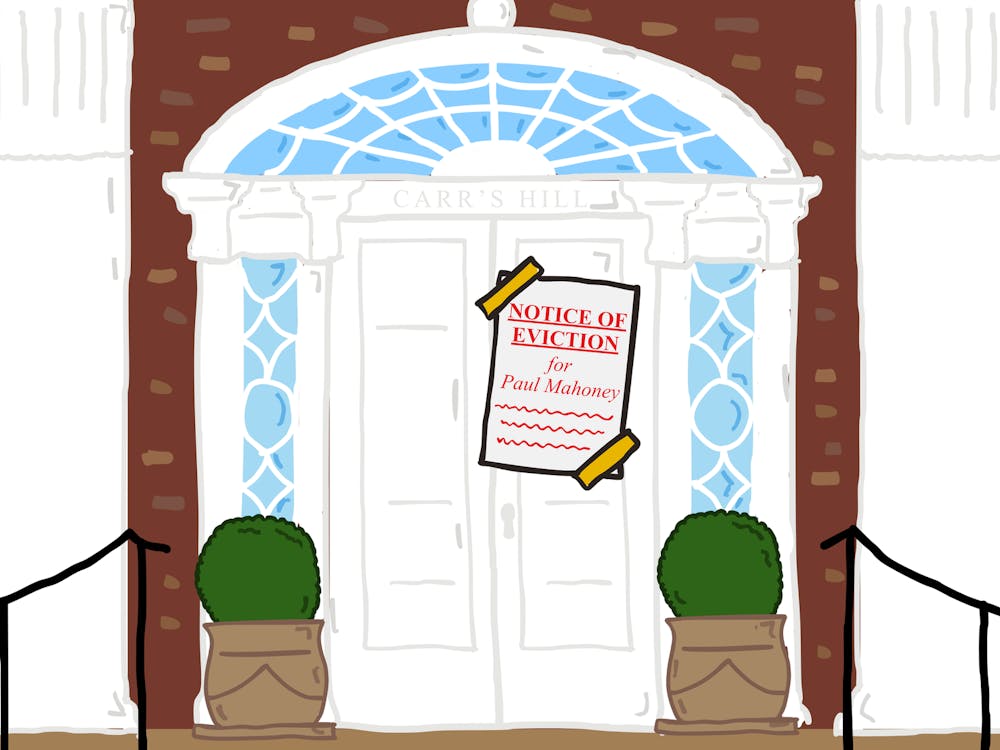Editor’s note: This article is a humor column.
Despite the five-and-a-half-hour pre-departure meetings and triple-checking that your passport works in the year of our Lord 2025, there’s something the University's summer study abroad programs don’t want you to know — they’re not real. If you’re in your hometown like I was last summer, you might be thinking the grass is greener across the U.S. borders.
But now, as a quasi-native Dubliner living in Ireland for the past month, I’m here to say it isn't — for three reasons. First, Peacock doesn't work so you can’t watch Love Island USA. Secondly, they don’t need any more of us. And finally? Nobody is actually doing any work here.
But we all still want to put this on our resumes. So for those of us who are feeling like the weekend trip to Barcelona was more mentally demanding than your classes or internship, here’s five ways to make your unserious experience seem meaningful. At least, to other people.
1. Stop saying “study abroad”
Because it’s NOT “study abroad.” It’s an immersive cultural experience in which young people explore their relationship with themselves and the world around them. They also explore flight prices on Ryanair since, if you’re not posting from a different country every other week, you clearly lack commitment to living in the moment. Besides, presenting yourself as a study abroad student discredits you both within your host country and outside of it — I’ve found throwing on an Irish accent and NEVER ordering half pints at a pub to be much more effective. Ultimately, reducing your time in the motherland to the phrase “study abroad” can just make it what it sounds like — reductive.
2. Vaguely relate it to your heritage
This might not work for every location University programs go to, but it never hurts to try. From the second you touch down, refer to your host country as “the motherland.” It doesn’t matter what your background is, your host country is HOME. Parts of the city where the streets are cobblestones? Home. Room temperature water with zero ice that you have to force yourself to drink so you don’t die? My people have been here before. Even if the street signs are in a different language, or the public transport has you begging for your car keys back, you have to fake it until you can convince people it didn’t take you five out of the eight weeks of your stay to adjust.
3. LinkedIn-ify your global internship — applicable only to the poor souls actually doing work while abroad
If you’re not studying and are somehow lucky enough to get an internship relevant to your future, you’ll realize that your job is doing anything your supervisors don’t want to do. If you’re a typical insane University student, this might feel disappointing. Nevertheless, there are two key things to remember — everyone who has an internship in the U.S. is also useless, and this is actually a golden opportunity. On day two, you should have an experiences tab on LinkedIn that rephrases your minor tasks. Language barriers or even accents are instances of cross-cultural collaboration. Using Slack is strategic communications with industry professionals. Do you keep your laptop on Microsoft Teams all day so your supervisor doesn’t realize you do nothing when you’re “remote”? Obviously that’s support in a hybrid workspace.
4. Go places
I’m pretty sure me dropping 1500 dollars in a month counts as cultural anthropology, right? It doesn’t matter if you think you look touristy — go to every place you can. Pizza place you saw on TikTok? Go there. Matcha bar inside a former warship inside a former colosseum? Well, yes. Not only are you taking advantage of the time you have since you’re barely working, but your friends and family will be in awe of the unique experiences you’re getting. Just tell them to throw away your bank statement whenever it comes in the mail. That’s not relevant.
5. Never shut up about it after it’s over
Even though you might be homesick, there’s one perk of going abroad that no one except for people in the same program as you can take away — relating it to everything that happens after. You might be craving air conditioning or ice, but everything else can be made superior to the United States. Pub culture across the pond, coffee places offering peak peoplewatching and national parks that provide employees job security are all great candidates for things to never shut up about. Even though I’m counting down the days until I’m back in Charlottesville, the thought of stepping into Trinity “Irish” Pub is already making me feel nauseous. Their Guinness is CANNED!
Whether you’re in a study abroad program never wanting to leave or okay with your scheduled return flight, it’s worthwhile to know the grass isn’t always greener. It’s actually blue here, because in [INSERT COUNTRY] the government actually cares about people, and the food is so much better for you, and the cities are walkable, and—







